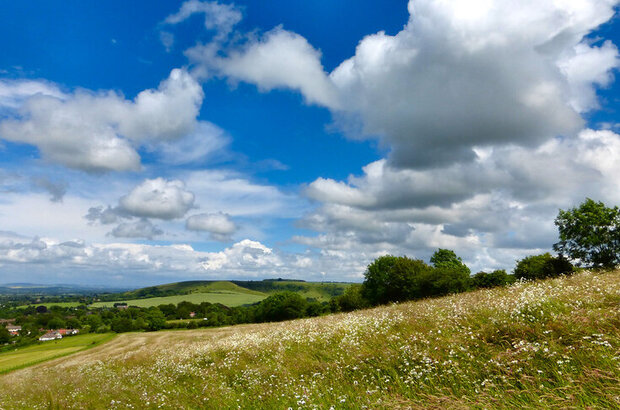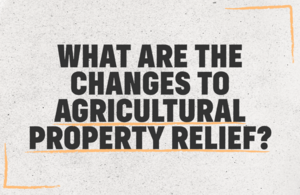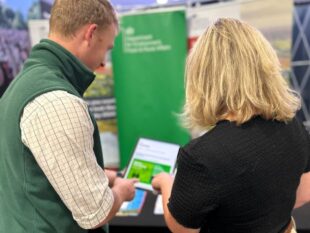
In September, the new Countryside Stewardship Higher Tier (CSHT) service will open for applications to those who have been invited to apply, have received pre-application advice and have completed any preparatory work.
In this post, we’ll give a brief overview of the scheme, our progress so far, and what you need to know about the new CSHT process.
Background
CSHT supports farmers, foresters and land managers to manage their land in a way that:
- protects, restores and enhances the natural environment
- improves biodiversity and water quality
- helps tackle the effects of climate change
The actions and capital items available through CSHT support the environment, farm businesses and the rural economy.
In autumn 2023, we closed the window to apply for a CSHT agreement. Since then, we’ve worked to improve the scheme. It now offers:
- 132 actions, including many that are new or improved
- 142 capital items, including 25 new items
- more flexibility to suit different land types and business needs
- quarterly payments for actions, to help with cash flow throughout the year
- better advice during the application process
These changes are designed to make it easier to plan and deliver environmental benefits while running resilient, productive farms.
The new and improved offer includes:
- a new species-rich floodplain meadow action to help protect and expand habitats that support wildlife and biodiversity, provide natural floodwater storage and offer potential for carbon capture and greater climate resilience
- a range of waterbody actions to help connect river and floodplain habitats, manage riparian and water edge habitats and prevent downstream flooding
- 4 new agroforestry actions to help reduce soil erosion, improve water and air quality on agricultural land, provide shade and shelter for crops and livestock, and reduce the risk of flooding.
We’ve taken the time to reopen the scheme in a way that works — not just by making sure the online system runs smoothly, but by giving applicants the support they need from invitation through to agreement.
The preview guidance for CSHT was published in December 2024. It sets out what you can expect from the new scheme including available actions and payment rates. It also provides you with information about how you can get ready to apply for CSHT when it opens for applications. The full CSHT scheme guidance will be published in September.
What you need to know about the new CSHT
You must wait to be invited
Our approach is to gradually bring people into CSHT by rolling out invitations every month.
Since January, selected groups have been invited to pre-application advice from Natural England and the Forestry Commission. These include:
- those with existing CSHT agreements expiring in 2025
- those with an approved woodland management plan
- applicants who already have an approved agri-environment plan - such as an implementation plan or agroforestry plan – and are ready to develop a CSHT application
If you’ve received an invitation for pre-application advice and would like to go ahead, please respond within 10 working days.
You don’t need to take any further action if you decide you don't want to, but for woodland applications, if you don’t intend to apply, please let the Forestry Commission know by email.
Your pre-application invitation email from the RPA includes details on how to respond and what happens next.
You must get advice and complete the pre-application step
Once you’ve confirmed that you are ready to start the pre-application process, a Natural England adviser or Forestry Commission woodland officer will contact you to discuss what you need to do before you can apply. Part of this might involve preparing a plan or study to support your application.
Capital grant funding is available for PA1: Implementation plan, PA2: Feasibility study, PA3: Woodland management plan, PA4: Agroforestry plan, PA5: Moorland mapping or PA7: Species management plan.
In the case of Natural England, they will work with you to identify the right actions and capital items to include in your application and any plans or studies you need to complete. They’ll also work with you to tailor management prescriptions for each action specifically for your land and to achieve environmental outcomes.
In the case of the Forestry Commission, you will be sent a Woodland improvement pre-application form to fill in. Once you’ve completed it, the Forestry Commission will be in touch. They will let you know if your form is approved, provide advice, and ask any questions.
The invitation to apply follows the pre-application step
After completing the pre-application step and receiving an invitation to apply for an agreement from the Rural Payments Agency (RPA), you’ll be able to access and start your application through the Rural Payments service.
Once the actions and capital items are included in the application, Natural England or the Forestry Commission (or Historic England if the relevant land has scheduled monuments) must review and approve this in the service.
Once approval is given, you’ll be invited back into the Rural Payments service to submit your application.
If you want someone else to apply on your behalf, such as an agent, you need to check they’re registered with the RPA in the Rural Payments service and give them permission.
Receiving an agreement offer
Pre-application advice and an invitation to apply don’t guarantee a CSHT agreement.
But by acting early and taking on the advice of Natural England and/or the Forestry Commission, you’ll give your application the best chance of success.
If you are successful, an agreement offer will be available for you to accept in the Rural Payments service. After that:
- your first payment will usually be made 4 months after acceptance
- future payments for actions will usually be made every 3 months
- payments for capital items can be claimed as you complete the works
Subscribe to the Farming blog
For more updates on CSHT and the wider Farming and Countryside Programme, subscribe to the Farming blog.
You’ll get practical information, scheme updates and stories from farmers across England straight to your inbox.




 The
The 
16 comments
Comment by Anna Caine posted on
Great that there is finally some communication, do timings differ for those in HLS agreements? They have already completed their PA1 / PA2s and have been in discussions with NE for over a year.
Comment by The Team posted on
Hi Anna,
Thanks for getting in touch. We can't comment on specific timings for individual applicants. If you’ve already received pre-application advice and completed preparatory work, the next step is to wait for your invitation to apply for a CSHT agreement when the scheme opens in September. Natural England must then review and approve your application. Once approval is given, you’ll be invited back into the Rural Payments service to submit.
Hope that helps,
The Team
Comment by Anna Caine posted on
That sounds like HLS agreements can be terminated at the earliest point that a HT CSS agreement may start, with no extra delays. Please can you point me in the direction of the published information that outlines how this transition works?
Comment by The Team posted on
Hi Anna,
Yes of course. In section 1.1.1 of the CSHT preview guidance, it states that HLS agreement holders with an agreement that expired in 2024 or that expires during 2025 may have the option to extend their existing agreement and the RPA will contact those agreement holders.
If you have accepted an extension or mirror agreement, payments will continue until you are invited to apply for CSHT. If you haven't accepted the extension or mirror agreement and want to apply for CSHT, you will need to wait until you are invited to do so.
Full preview guidance, and a direct link to this section is here: https://www.gov.uk/government/publications/countryside-stewardship-higher-tier-get-ready-to-apply/countryside-stewardship-higher-tier-preview-guidance#about-the-countryside-stewardship-higher-tier-csht-scheme-:~:text=1.1.1%20Agri%2Denvironment%20or%20mixed%20agri%2Denvironment%20and%20woodland%20CSHT%20or%20Higher%20Level%20Stewardship%20(HLS)%20agreements%20that%20expire%20soon%2C%C2%A0or%20that%20expired%20in%202024
Hope that helps,
The Team
Comment by Merrick Denton-Thompson posted on
My slight concern is having to wait to be invited into the scheme gives the impression of state control. This approach was proposed by the first CEO of Natural England in about 2008 and was roundly rejected by the then Labour Ministers. Surely we are still trying to encourage collaboration and partnership working to deliver the Government's policies?
Comment by The Team posted on
Hi Merrick,
Thanks for getting in touch. It's by invitation only because we want to roll out the scheme in a controlled way to ensure everyone gets the right level of support during the pre-application and application stages of the CSHT process.
There will be opportunities for other farmers and land managers to access CSHT in the future ensuring more people can benefit from the scheme and support environmental improvements on their land.
Best wishes,
The Team
Comment by Merrick Denton-Thompson posted on
Thank you, but the impression will linger, it would be helpful if you are able to emphasise this is a temporary restriction designed to help the applicant and that it will be opened up in the future.
Comment by James posted on
Great news. Will this include Common Land?
Comment by The Team posted on
Hi James,
Those with common land will need to wait a little longer to apply (we'll share updates on the blog).
In the meantime, you can still prepare by completing any necessary plans or studies.
If your CSHT agreement expires in 2025, Natural England will work with you to develop a new agreement.
Best wishes,
The Team
Comment by Martyn Fribbens posted on
Our CSHT agreement expired at the end of 2024 and we have an existing approved WMP, yet we have not been invited. Are invitations still being sent or do we still have to wait and hope?
Comment by Sarah Stewart posted on
Hi Martyn,
My colleague was looking into this but is now on leave so please accept my apologies for the delay - do I have permission to use the email address you left when you posted the comment to follow up with you?
Sarah
Comment by Sandy Brown posted on
Please advise when application portal will open, we have our completed application but we also have a live HLs ( until may 2028 ) , How will this be dealt with?
Sandy
Comment by Sandy Brown posted on
Please advise when application portal will open, we have our completed application but we also have a live HLs ( until may 2028 ) , How will this be dealt with?
Sandy
Comment by Sarah Stewart posted on
Hi Sandy,
From next week, eligible farmers, foresters and land managers who’ve received pre-application advice and completed any necessary preparatory works will be invited, on a rolling basis, to apply for Countryside Stewardship Higher Tier (CSHT) online.
Best wishes,
Sarah
Comment by Rod Duggleby posted on
Our CSHT agreement expired at the end of 2024 and we have an existing approved WMP, yet we have not been invited. Are invitations still being sent or do we still have to wait and hope? Thank you.
Comment by The Team posted on
Hi Rod,
If you fall into one of the priority categories, you will be contacted by RPA on a rolling monthly basis, on behalf of Natural England or the Forestry Commission to begin the pre-application process.
The priorities categories are:
-customers with an existing CSHT agreement that expires at the end of 2025
-those with an approved woodland management plan already in place
-those who want to apply for an agri-environment agreement and have an approved plan in place so are ready to develop an application
Best wishes,
The Team